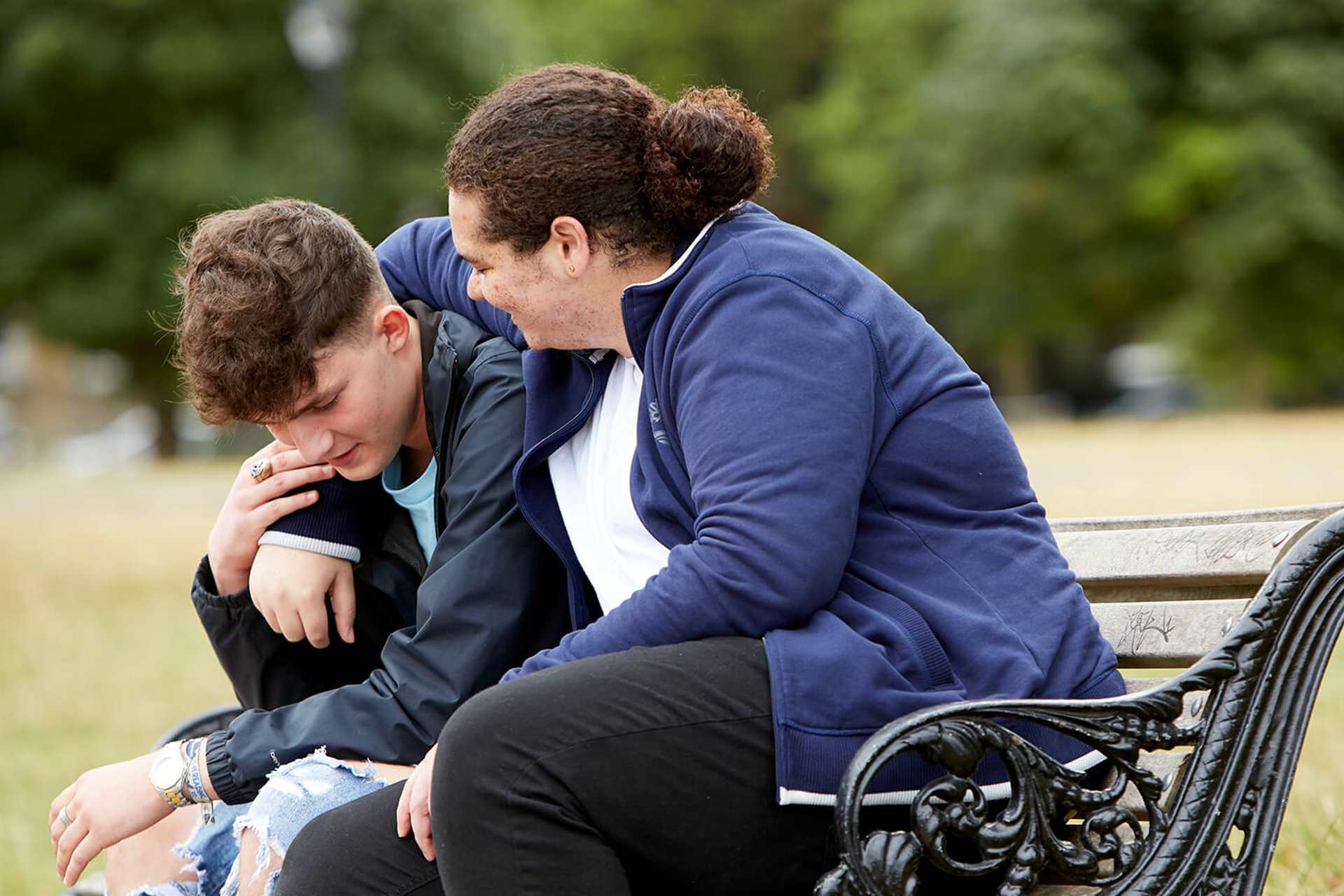Topics mentioned: anxiety, eating problems
About: If you have food allergies, intolerances or other dietary requirements, it can cause a lot of anxiety – especially if it affects your ability to do things others may take for granted. Here Caitlin shares her experience and her tips for coping.
There are very few restaurants that can cater for me, severely limiting my options for eating out.
Struggling with food and eating
All through my childhood, I had no complications with eating or food. However, I developed an eating disorder around the age of 13 and was treated at the age of 15 by a CAMHS eating disorder clinic.
After completing the weight gain meal plan I was placed on, it became clear that my being unwell wasn’t only due to the meal plan. After a consultation with a CAMHS dietician, it was agreed that I should try cutting out dairy from my diet. Unfortunately, within a week I became seriously ill. As some of you may be aware, soya products are the main alternative to dairy – which I soon realised I was also intolerant to. Thankfully, I am now able to greatly reduce my symptoms by not consuming dairy, soya/soybeans, sulphites and some fruits and vegetables.
It was a very distressing and confusing time because, as well as the physical pain, it was very difficult to have to think so much about food and not be restrictive in my diet while still trying to recover.
It was a very distressing and confusing time because, as well as the physical pain, it was very difficult to have to think so much about food and not be restrictive in my diet while still trying to recover.
Anxiety and stress around dietary requirements
Now I am glad to say that I have found enough alternative products that I can mostly eat ‘normally’ with others. However, there are still situations when it can be extremely challenging.
There are very few restaurants that can cater for me, severely limiting my options for eating out. Of course, many of them provide allergen information online but it takes away enjoyment when knowing there is only one specific dish that you can eat at a restaurant.
Additionally, there is the constant fear that a mistake will be made. It’s also too demanding to ask friends to provide food for me when even the slightest cross-contamination can make me so ill that I need to stay home for a couple of days. It removes all spontaneity from eating as everywhere I go, whatever I do, I need to have a plan for food and/or pre-prepare and bring it. This can be incredibly stressful and, as a result, I sometimes avoid eating out. Sadly, this means I tend to miss out on social occasions with family and friends. It’s difficult to be confident when even the smallest error can have disastrous consequences.
It’s difficult to be confident when even the smallest error can have disastrous consequences.
My advice to young people with dietary requirements
My recommendation to other young people is to make as much fun out of it as possible. I find it a lovely chance to shop, bake and cook with my Mam – things we may not have done otherwise. We spend time finding recipes, buying ingredients, and then trying them together. My best friends have also turned it into a kind of game, sending me pictures of foods that I can eat that none of us previously realised.
It may seem counter-intuitive but being more responsible for what I eat has assisted recovery from my eating disorder - it’s resulted in me learning the benefits of proper nutrition from a balanced, healthy diet.
To those of you with similar struggles, I want to remind you that you’re not alone, and I want to offer some encouragement; technology keeps moving forward and so there are more and more products on supermarket shelves to cater for those with dietary requirements. Things are getting better, but for now, you’ve got this.
To those of you with similar struggles, I want to remind you that you’re not alone.
Where to get help
-
Samaritans
Whatever you're going through, you can contact the Samaritans for support. N.B. This is a listening service and does not offer advice or intervention.
- Opening times:
- 24/7






